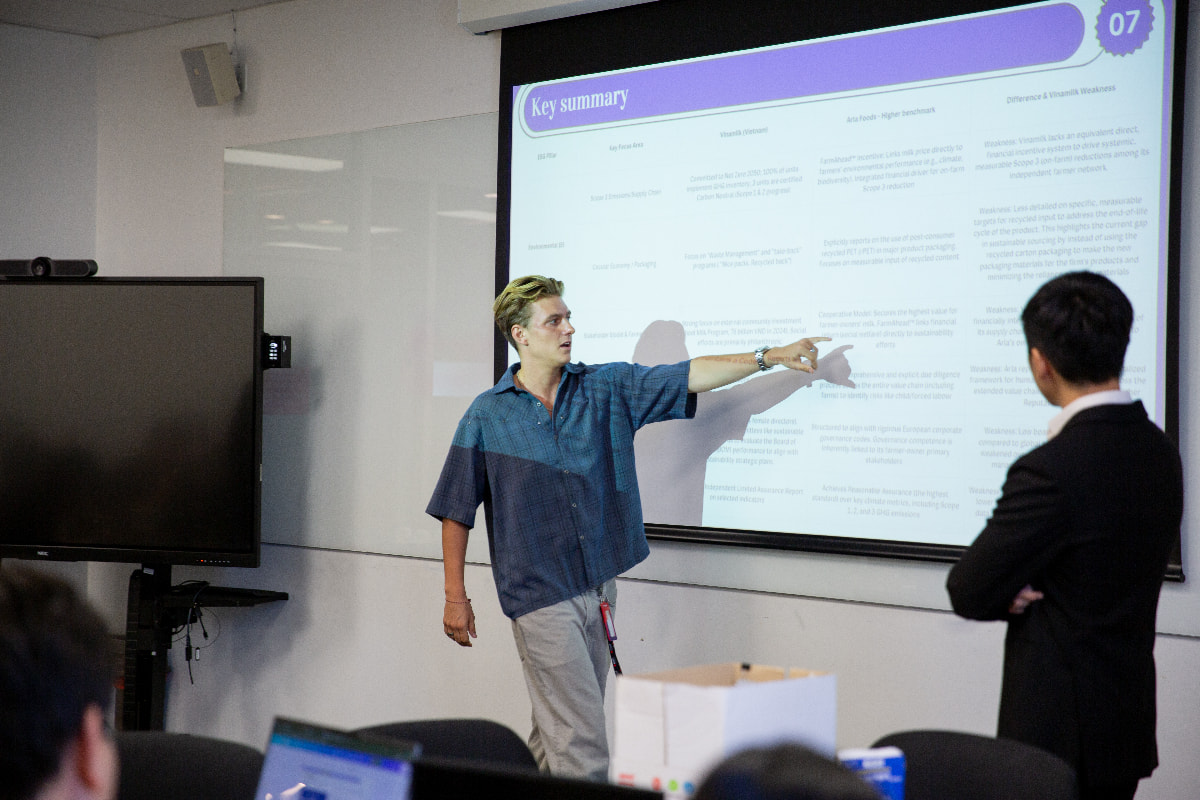How sustainable thinking is reshaping global business at RMIT Vietnam
The “Sustainable International Business Futures” course equips students to lead with purpose – by treating sustainability as a strategic capability, not a side issue.
From ambition to impact: Vu Khang Thanh’s sustainable leadership powered by MBA scholarship
Vu Khang Thanh is the archetype of the leader the RMIT MBA Scholarship seeks to recognise: guided by long‑term vision, values‑driven, and committed to creating positive community impact alongside generating profit.
To Minh Ngoc and the ripple effect of research and growth
Ngoc To shares her journey from clinical trials to AI-driven research – and the mindset that’s helped her stay grounded through every challenge.
Tran Tu Quyen and her journey to becoming a strategic, inspiring leader with RMIT
From her MBA journey at RMIT, Tran Tu Quyen transformed from a young professional into a strategic leader.








